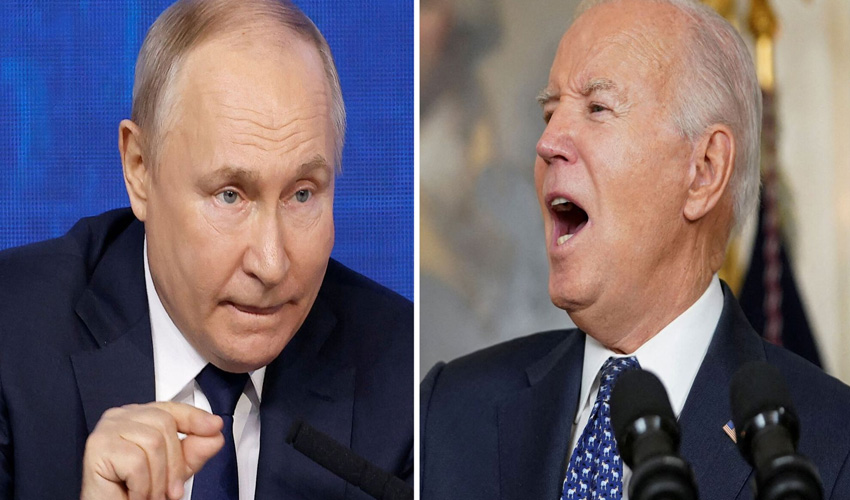Russia has vowed to deliver a “tangible” response should Ukraine use US-supplied long-range missiles against its territory, escalating tensions as the war in Ukraine enters its 1,000th day.
The Russian Foreign Ministry on Monday warned that such attacks would be seen as "direct involvement" by the United States and its allies in hostilities against Moscow. The statement came days after US President Joe Biden approved the transfer of ATACMS missiles to Ukraine, lifting previous restrictions on their use within Russian borders.
The decision marks a significant policy shift, with far-reaching implications for the conflict. The ATACMS missiles, with a range of 300km, complement Ukraine's existing arsenal, which includes similar long-range weapons from France and the UK.
International reactions and battlefield dynamics
Biden’s approval has drawn a mixed response globally. French President Emmanuel Macron lauded it as a “good step,” but Russia’s government accused Washington of “adding oil to the fire.” Kremlin spokesperson Dmitry Peskov warned of severe consequences for US involvement in the conflict.
In an unusual development, more than 10,000 North Korean soldiers have reportedly arrived in Russia’s western Kursk region, with unconfirmed reports suggesting Pyongyang could deploy up to 100,000 troops to bolster President Vladimir Putin's military campaign.
Meanwhile, Ukrainian President Volodymyr Zelensky has remained cryptic about the missile deal, stating that “the missiles will speak for themselves.” Speculation is rife that Ukraine may use the newly provided weapons in the contested Kursk region, where Ukrainian forces hold a small piece of territory.
The conflict continues to take a heavy toll. Russian strikes over the weekend targeted Ukraine’s power grid, leading to widespread blackouts and multiple casualties. On Monday, a Russian attack on Odesa killed 10 people and injured nearly 50, compounding the humanitarian crisis.
The battlefield appears deadlocked, with neither side gaining significant ground in recent months. Analysts view the introduction of long-range missiles as a potential game-changer, although it risks further escalation.
Political stakes in Washington
The decision comes as President Biden prepares to leave office in January, raising questions about continuity in US policy under his successor, President-elect Donald Trump. Trump, who won the November 5 election, has pledged to end the war within 24 hours of taking office but has yet to provide specifics.
Trump’s promise aligns with his broader agenda of reducing US involvement in foreign conflicts, but critics question whether his approach could lead to a sustainable peace deal.
As tensions mount, Chinese President Xi Jinping has called for restraint and urged world leaders to seek a political solution to the Ukraine crisis. Beijing, a critical ally for Moscow amid Western sanctions, continues to advocate for dialogue, although its role in supplying weapons to Russia remains a contentious issue.
The US missile decision underscores a deepening international divide over the Ukraine war. While Biden's move is seen as a strategic signal to Russia, its long-term impact on the conflict remains uncertain, particularly with Trump’s impending presidency.
For now, Ukraine braces for what could be a critical turning point in a war that has reshaped the geopolitical landscape.



























